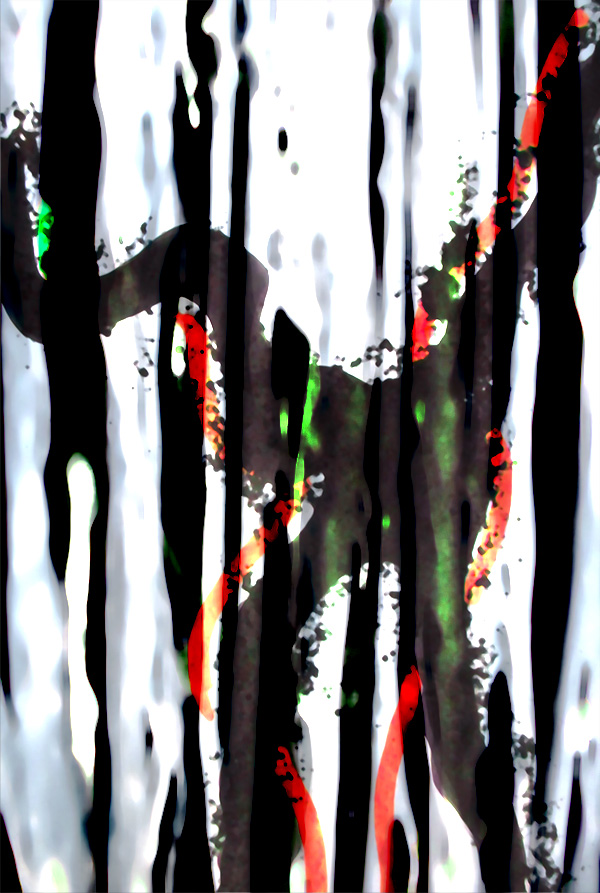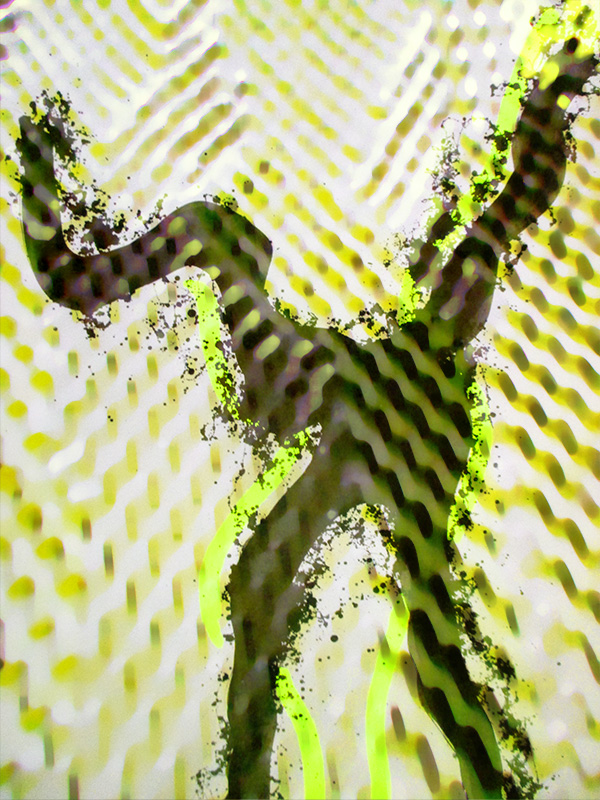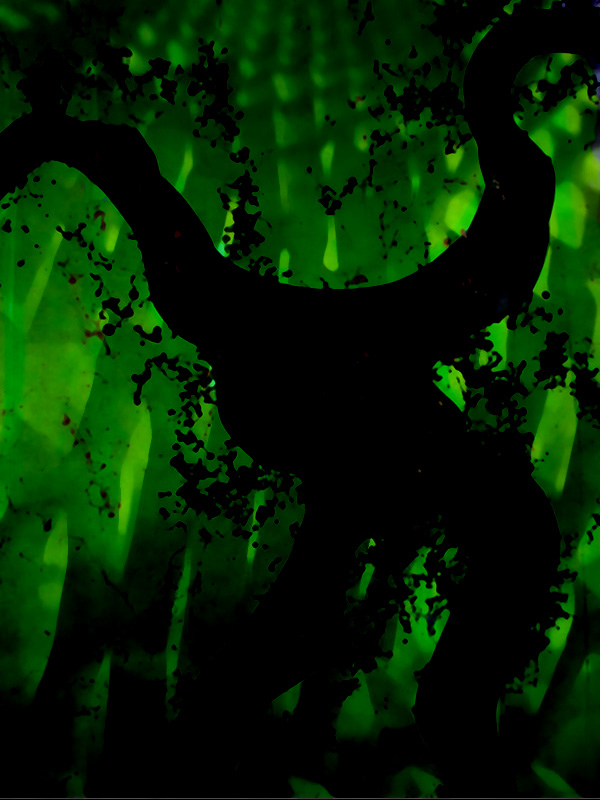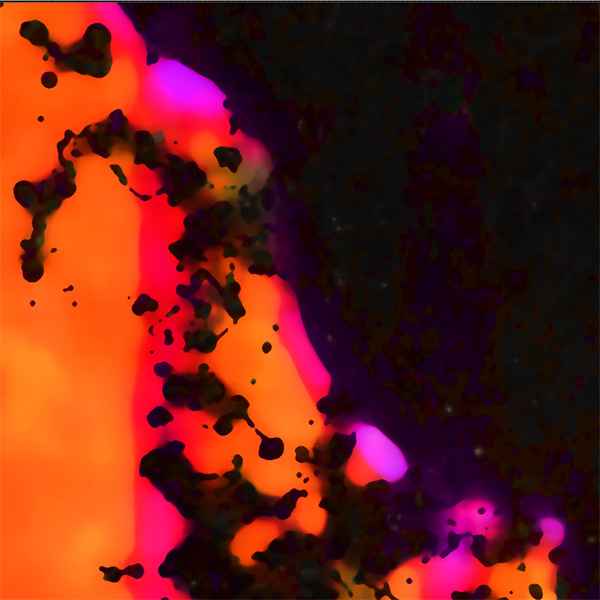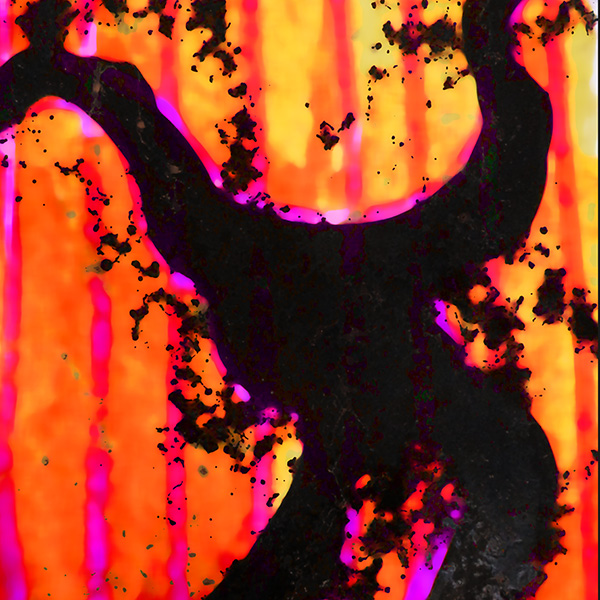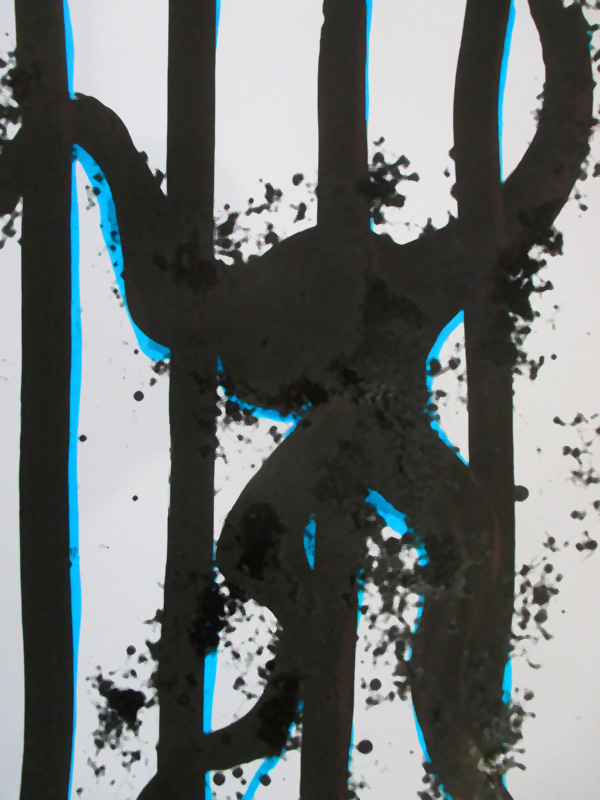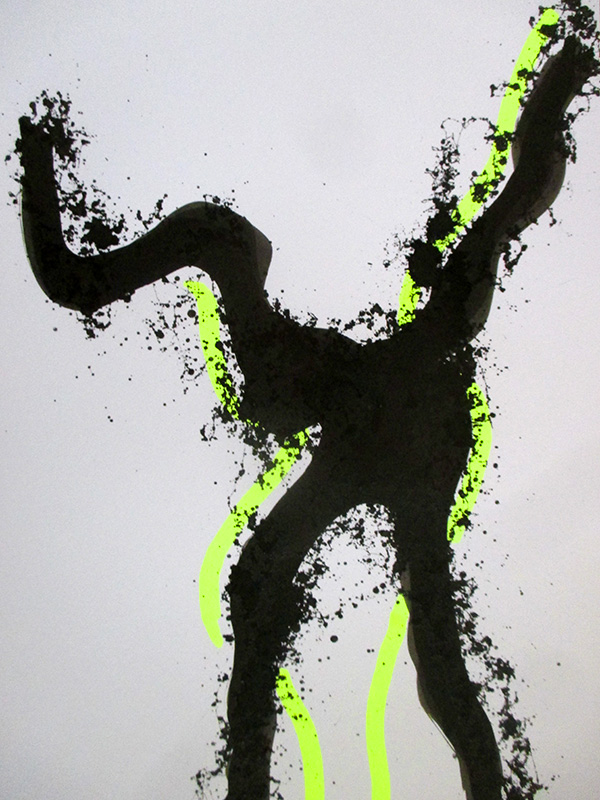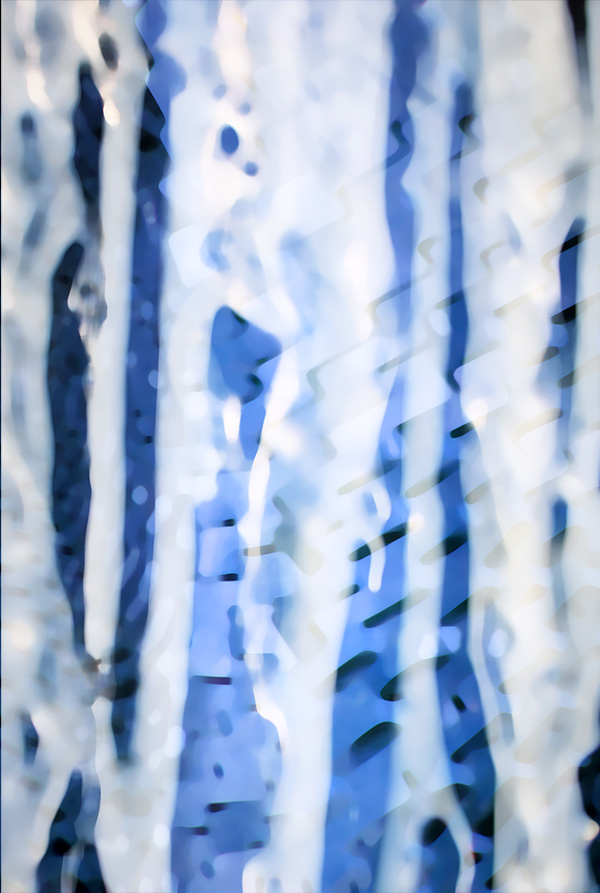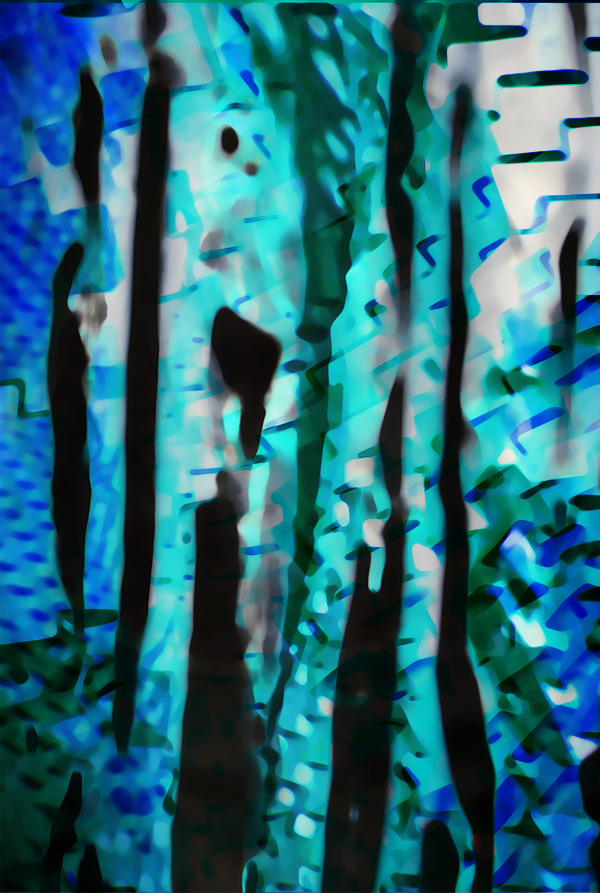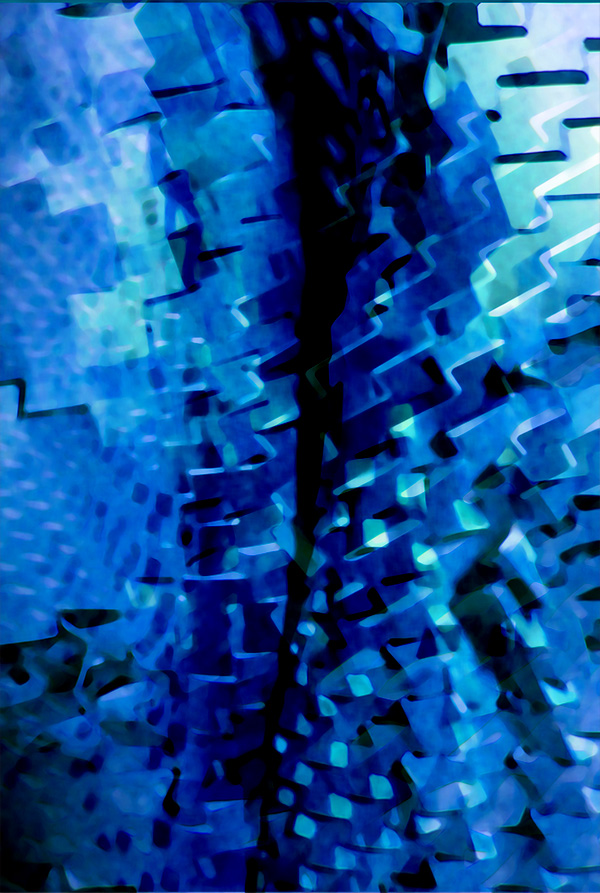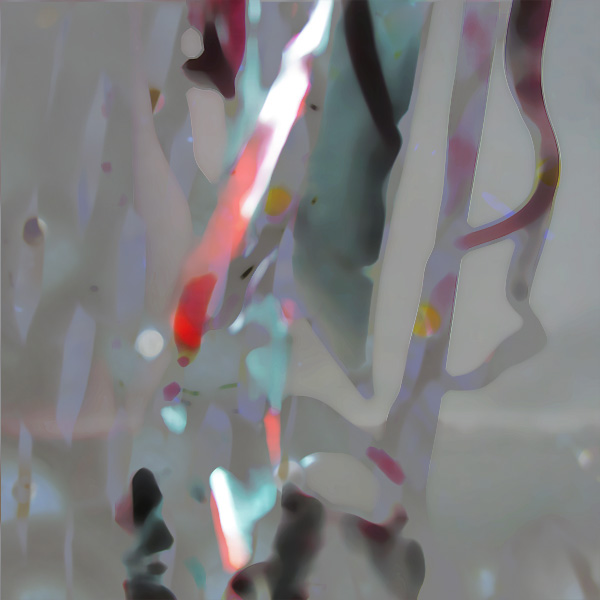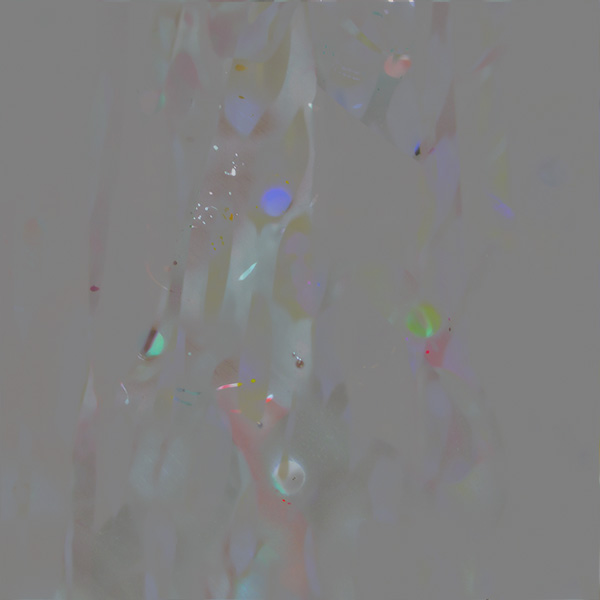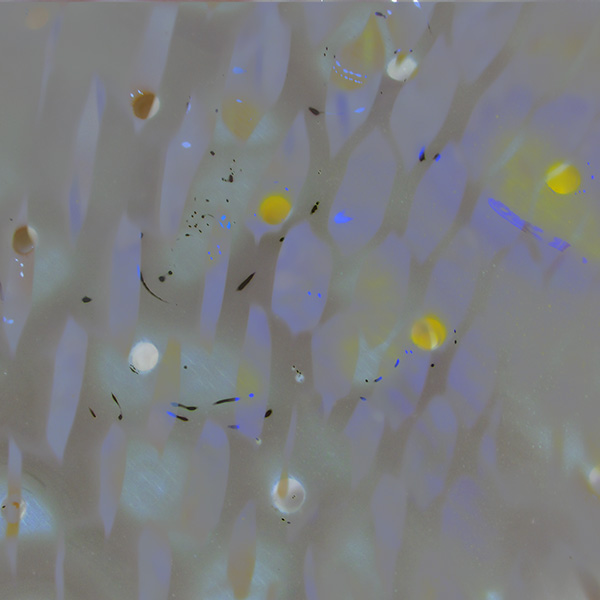duur
Als ik lees dat een kennis met emiraat gaat ben ik verrast, nu al? En dan besef ik dat ook ik later dit jaar aow ga ontvangen. Ik denk dat Bergson’s begrip Duur dichter ligt bij hoe ik leven ervaar dan het begrip tijd. Tijd is een handigheidje voor roosters en agenda’s. De ervaringen met bepaalde mensen liggen voor mij niet in het verleden maar draag ik met mij mee, ervaar ik ook nu.
sociale kunst
Ik bezocht deSonic Acts expositie in Framer Framed en vond de boekwinkel het interessantst. Eén van de diaprojecties was zelfs niet te zien omdat de zon erop scheen.
Ik bedacht dat het sociale in de hedendaagse kunst enorm belangrijk gevonden wordt. Elkaar ontmoeten en liefst ook bevestigd worden in het eigen gelijk lijkt hoofdreden om een tentoonstelling te bezoeken. Als ik het op een woensdagmiddag bezoek ben ik dan ook de enige bezoeker, er is immers geen activiteit gepland. En de getoonde werken zijn vooral geschikt om bij te babbelen en er misschien zelfs een gesprek over te voeren, het fysieke ervaren van kunst lijkt hier niet te spelen. Vandaar dus mijn interesse in de boeken, zo kocht ik een boekje met de foto’s van de diashow die onzichtbaar was. Kan ik ze thuis rustig bekijken.
verdinglijking
Ik lees zojuist in De Witte Raaf een artikel over Marcel Broodthaars, interpretatie, kritiek en ruimte. Om maar wat woorden te noemen. Wat me eraan stoort is dat het een kritiek over kritiek is. Wat me in eerste instantie enthousiast maakte is het begrip reïficatie oftewel verdinglijking. Omdat ik onder andere op kunstbeurzen dingetjes kunst zie, kunst als object en handelswaar waar het voor mij in kunst om andere dingen gaat, het ervaren, samengaan, verruimen.
Al vind ik kritiek op kritiek iets vermoeiend hebben, het stuk heeft toch voldoende gezichtspunten die het boeiend maken en het denken stimuleren:
www.dewitteraaf.be/artikel/de-verovering-van-de-ruimte-benjamin-buchloh-marcel-broodthaers/
kan kunst hedendaags of oud zijn? (post #3333)
Is kunst een product of een ervaring, is kunst een ding of een verschijning? In onze kapitalistische maatschappij lijkt kunst op zijn best luxe handelswaar te zijn en op zijn slechts overbodige troep. Ik zie het meer als een houding, een intentie bij het ontstaan van een kunstwerk. Kunst kan aangenaam en vermakelijk zijn maar het moet meer dan dat zijn. Waarschijnlijk gaan kunst en kapitalisme slecht samen, kapitalisme vervuilt en vervlakt alles en dat is het meest zichtbaar geworden in haar Neoliberale vorm.
Waarschijnlijk geld bij kunst het algemene van tijd, het is een handig hulpmiddel om dingen te regelen en organiseren. Het onderscheid tussen oude en moderne kunst is dubieus en komt waarschijnlijk ook voort uit de economische visie.
intellectual friendship
Deleuze & Guattari worden door veel kunstenaars gelezen en als inspiratie ervaren en dat is niet vreemd want kunst is voor Deleuze & Guattari eveneens een grote inspiratie. Waar kunstenaars en filosofen wezenlijk andere denk- en werkwijzen hebben is er wel overeenkomst in onderzoek gebieden. Juist door de verschillende benaderingen vullen ze elkaar aan en kunnen ze elkaar inspireren.
Deleuze & Guattari werken met het ervaren van en denken over kunst. Bij mij ontstaan beelden vaak vanuit het lezen en ervaren van hun concepten.
Percept, Affect and Concept
‘What is preserved – the thing or the work of art – is a bloc of sensations, that is to say, a compound of percepts and affects.
Percepts are no longer perceptions; they are independent of a state of those who experience them. Affects are no longer feelings or affections; they go beyond the strenghth of those who undergo them. Sensations, percepts and affects are beings whose validity lies in themselves and exceeds any lived. The could be said to exist in the absence of man because man, as het is caught in stone, on the canvas or by word, is himself a compound of percepts end affects.
The work of art is a being of sensation and nothing else: it exists in itself.’
‘Composition, composition is the sole definition of art. Composition is aesthetic and what is not composed i snot a work of art. However, technical composition, the wprk of the material that often calls on science (mathematics, physics, chemistry, anatomy) is not to be confused with aesthetic composition, which is the work of sensation. Only the latter fully deserves the name composition and a work of art.’
‘There is only a singular plane in the sense that art includes no other plane than that of aesthetic composition: in fact, th etechnical plane is necessarily covered up or absorbed by the aesthetic plane of composition. ‘
‘What defines thought in its three great forms – art, science and philosophy – is always confronting chaos, laying out a plane over chaos. But philosophy want to save th einfinte by giving it consistency: it lays out a plane of immanence that, through the action of conceptual personae, tales events or consistent concepts to infinity. Science, on the other hand, relinquishes the infinite in order to gain reference: it lays out a plane of simply undefined coordinates that each time, through the the action of partial observers, defines states of affairs, functions or referential propositions.’
‘The three thoughts intersect and intertwine but without synthesis or identification. With its concepts philosophy brings forth events. Art erects monuments with its sensations. Science constructs states of affairs with its functions. ‘
Gilles Deleuze and Félix Guattari: What is phylosophy?
Translated by Hugh Tomlinson and Graham Burchell
pre-colonial
“My work isn’t anti-colonial or post-colonial. It’s pre-colonial. I want to remember who we were two thousand years ago. Not just before slavery, but before the idea of empire. That’s why I say my work is about beauty, not politics.”
Qudus Onikeku in City magazine
